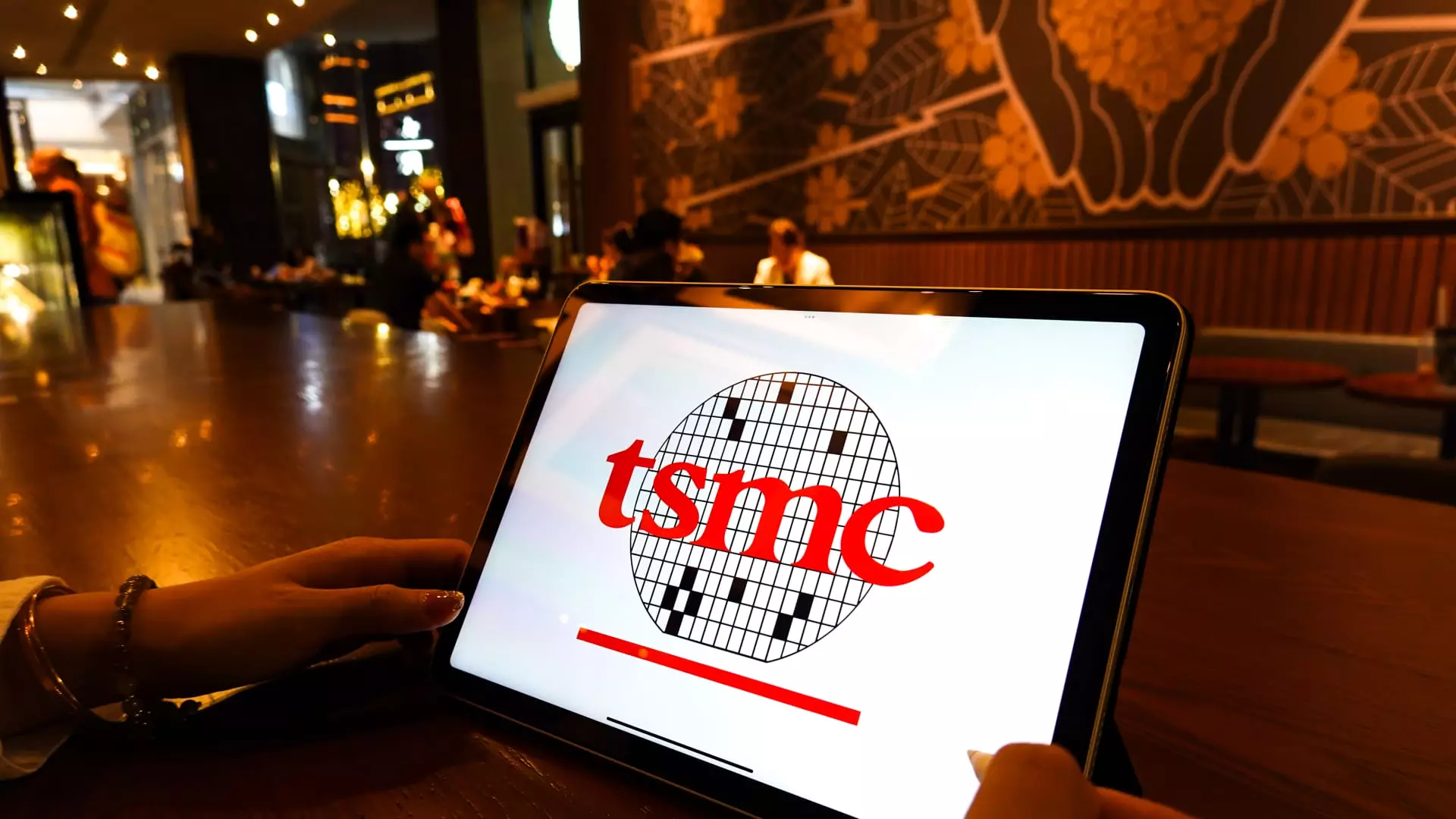Taiwan Semiconductor Manufacturing Company (TSMC) has recently demonstrated remarkable financial resilience, reporting an impressive 54% increase in net profit for the third quarter of this year. With net income soaring to 325.3 billion Taiwanese dollars, equivalent to approximately $10.1 billion, TSMC has not only eclipsed analysts’ expectations but also solidified its position as the world’s leading semiconductor manufacturer. This growth has been largely driven by escalating demand for chips, particularly in the realm of artificial intelligence (AI), which has emerged as a transformative force in the technology sector.
In the July to September period, TSMC’s revenue reached an astonishing $23.5 billion, signifying a year-on-year growth of 36%. The company also reported a gross margin of 57.8%, an increase from 54.3% during the same quarter last year. The robust demand for TSMC’s cutting-edge technology, especially its 3nm and 5nm chips, has been bolstered by an upsurge in smartphone sales and AI applications. This positions TSMC strategically within the supply chain for leading tech companies such as Apple and Nvidia, which rely heavily on advanced semiconductor technology.
Looking ahead, TSMC’s Chief Financial Officer Wendell Huang projected that the company’s revenue for the fourth quarter is expected to be between $26.1 billion and $26.9 billion. This estimate reflects both a sequential increase of approximately 13% and a year-on-year rise of around 35% at the midpoint. Such positive projections underscore the growing momentum behind TSMC, as it continues to capitalize on global shifts toward AI and smart technology.
During a recent earnings call, TSMC’s Chairman and CEO C.C. Wei articulated the company’s commitment to responding to the burgeoning need for AI-driven solutions. He emphasized that the demand for AI-related technologies is not a fleeting trend but a substantial, ongoing evolution in the industry. Wei noted, “almost every AI innovator is working with TSMC,” highlighting the firm’s pivotal role in the ecosystem of modern technology.
To sustain its growth trajectory, TSMC has indicated an increase in its capital expenditure to slightly above $30 billion for the year. This reflects a commitment to maintaining its competitive edge through enhanced manufacturing capabilities and expanded infrastructure. The company’s spending on capital projects climbed to $6.4 billion in the third quarter, a marginal increase from the prior quarter. This investment signifies TSMC’s focus on advancing its technological offerings and meeting the escalating demands of the global market.
The company is not merely investing domestically but is also expanding its global footprint. With significant investments of $65 billion allocated toward three chip manufacturing plants in Arizona and the establishment of its first factory in Japan earlier this year, TSMC is strategically positioned to support U.S. demand and cater to international markets. This expansive approach to growth underscores TSMC’s commitment to not only meeting current demand but also anticipating future technological developments.
Despite TSMC’s outstanding performance, the broader market remains cautious, particularly in light of mixed signals from other industry players. For instance, ASML, a crucial supplier that provides machinery to TSMC, recently issued a lower-than-expected sales forecast, which adversely affected its share prices. Such events highlight the uncertainty that can accompany market trends, particularly in the technology sector, where rapid shifts can occur.
Furthermore, experts in the field have expressed skepticism regarding the sustainability of the current AI boom. Young Liu, the CEO of Foxconn, articulated a more measured perspective on the AI frenzy, suggesting that the industry may still have some maturation to undergo before it fully capitalizes on its potential. This viewpoint serves as a reminder of the complexities involved in forecasting long-term growth within such a volatile market.
TSMC’s current achievements celebrate a stellar third quarter driven by AI demand and increased investment in advanced technologies. As the company navigates potential uncertainties in the market, its proactive approach to capital expenditure and infrastructure expansion will likely play a critical role in sustaining growth. While optimism surrounds the future of AI applications, TSMC and the broader semiconductor industry must remain vigilant, adapting to the evolving landscape to maintain their competitive advantage in an increasingly dynamic and complex market.

